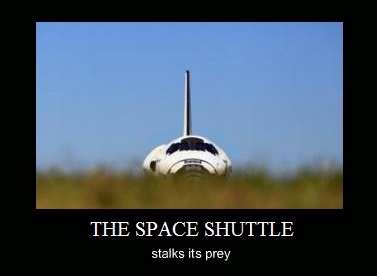Matthew Fiedler - Biomedical Engineer - Neurosciences Labs
Born in the quiet farming village of Scranton, Iowa, which he describes as “miles from nowhere,” Matthew earned his Master’s degree in Biomechanics and Exercise Science from the University of Nebraska at Omaha.
Good to know NASA recruits in Captain Kirk’s homestead… describe what you mean by a quiet farming village?
Matthew: Scranton is a peaceful place where folks are practiced in the art of plain living. There is sun and rain enough for the crops to grow, the animals to graze and the birds to sing. I like to take my daughter there when I can. Altogether there are no more than a few hundred people in and around my home town. It's the kind of place where the graduating seniors would drive their tractors around the school honking horns and cheering.
And how did you get on the path to pursuing a job at the Johnson Space Center?
Matthew: I was contacted by Wyle (NASA subcontractor) a little over a year ago. I had never expected to be involved in the space program, and since coming here it has been one nice surprise after another…I enjoy the quality of my colleagues and the working atmosphere at NASA. I feel fortunate to be working in a strong engineering and research environment.

Of course I only see you when I do balance tests at UTMB, but what other types of work do you do in the "home office laboratory"?
In addition to the -6 bed rest I am involved in several other projects. In a related study, I am part of a team developing the lunar analog simulation which resembles head down bed rest only the bed is tilted up 9.5 degrees. This mimics the condition of being on the moon and allows scientist and engineers to study the physiological effects of lunar gravity on humans.
I’ve seen the gear, it's awesome to think we'll use it on the moon! When you’re not with us, do you work with actual astronauts?
Yes, I study concepts of postural stability (or lack thereof) in the astronauts returning from space and how terrestrial space suit design affects the stability of the person inside it. Personnel in the neuroscience lab study the effects of different motion environments on humans, pre-flight adaptation and virtual reality training, and sensorimotor stimulus.
Have you ever done these tests yourself?
I have been tested on the platform a number of times. The first time is memorable because it is such a novel experience. It is a good test for the body's physiological systems related to balance. Reading your blog often, by the way... and you explain the science and "reasons for the science" in such clear terms it makes me happy.
Good to know! And always feel free to jump in with corrections so I know I'm getting this stuff right as I learn about it too...  Julie Esteves - Research Specialist - Neurosciences Laboratory
Julie Esteves - Research Specialist - Neurosciences Laboratory
Born in San Juan, Puerto Rico, Julie attended Williams College in Massachusetts, where she earned a B.A. in Biology and Psychology with a Neuroscience concentration. She started her research career in San Diego but soon decided she’d rather be closer to her family, and moved near her sister in Houston.
So how did you get on the path to pursuing a job at the Johnson Space Center?
“I've always been interested in the space program. Who isn't?? And I was even more curious when I found out about the available opportunities. To be honest, I wasn't aware they even had a Neurosciences lab onsite! It's great to be a part of this enormous effort and it's especially rewarding to see so many disciplines working together. I was drawn to the Flight Analog Project and about how we can mimic spaceflight in order to study its effects on the human body. It's not just about going to the moon and Mars (although that is unbelievably exciting), but we can also apply this research to our everyday life here on Earth.”
What is most important about your area of expertise?
The balance control system helps keep the astronauts safe after spaceflight by ensuring they are able to go back to their normal routines. Driving and bending down become harder, since their bodies need time to re-adapt to Earth's gravity. This same posture system is also used the test the elderly and patients with inner ear problems.
Have you ever done these tests yourself so you get a feel for what astronauts and FAs go through?
I'm actually now in the process of finishing up my Air Force Class III physical in order to participate as a subject in several different projects, including a normative Balance Control study, so I've been asked not to be tested on the posture platform just yet. While I was at the Human Test Subject Facility, however, I met someone who's been a subject at JSC for over 20 years and was involved in a study which led to the shuttle's onboard hygiene system! The study required a strict "no showering or washing your hair at home" policy and only taking care of personal hygiene at the study site.”
Yeah, what a shame there is no blog for that study ;)


































































